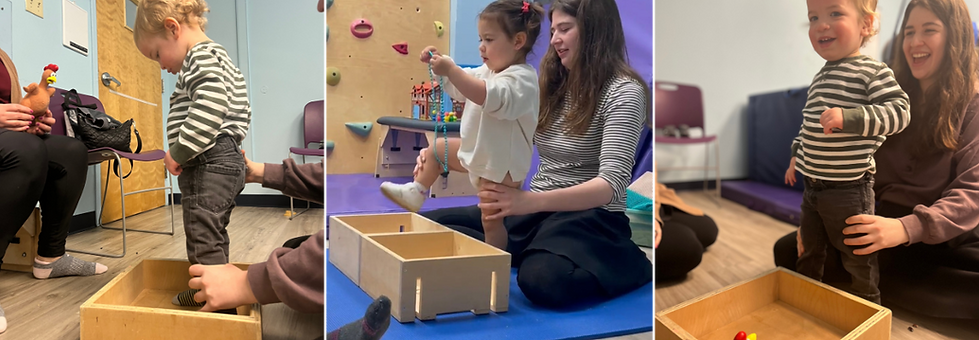Understanding DMI Therapy
Dynamic Movement Intervention (DMI) is a specialized therapeutic technique used by occupational and physical therapists to treat children with motor delays. This comprehensive approach focuses on improving automatic postural responses and promoting progress toward achieving developmental milestones through structured, dynamic exercises that stimulate neuroplasticity in the developing brain.
Why Choose DMI Therapy?
Dynamic Movement Intervention (DMI), and its predecessor Medek represent a breakthrough in pediatric movement therapy. Unlike traditional approaches that focus on passive movement, DMI and Medek actively engage your child's natural learning processes to develop stronger, more coordinated movements.
Science-Backed Results
DMI therapy is built on established neurological research showing how targeted movement exercises create new neural pathways. This means your child's brain learns more efficient ways to control movement, leading to lasting improvements.
Customized Development Plans
Every child receives a unique therapy program designed around their specific needs, abilities, and goals. We continuously adjust these plans based on progress, ensuring optimal development at every stage.
Family-Centered
Parents receive hands-on instruction to practice skills at home, tailored to their needs, skills, and talents.
Comprehensive Progress Tracking
Progress updates are part of all regular sessions. Our systematic approach incorporates clear documentation of improvements in strength, coordination, and functional abilities.
Who Benefits from DMI?
DMI therapy is effective for children with delays in developmental milestones and challenges in postural control and gross motor skills, including children with:
-
Down Syndrome
-
Cerebral Palsy
-
Global Developmental Delays
-
Premature Infants
-
Genetic Disorders
-
Spinal Cord Conditions
-
Acquired Brain Injury
-
Hypotonia or Hypertonia
-
Chromosomal Abnormalities
-
Arthrogryposis
-
Periventricular Leukomalacia
-
Undiagnosed Motor Delays

Key Components of DMI
Gross Motor Development
Develops fundamental movement patterns and automatic motor responses
Postural Control
Enhances alignment and body positioning for improved stability
Balance Training
Builds coordination and stability through specialized exercises
Functional Movement
Improves practical skills needed for daily activities and independence
Sensory Integration
Enhances body awareness and movement control through sensory feedback
Developmental Progression
Structured advancement through movement milestones
What Happens During DMI Therapy?
1. Initial Assessment
Your journey begins with a thorough evaluation including:
-
Current movement abilities assessment
-
Developmental milestone review
-
Medical history analysis
-
Sensory processing analysis
-
Family goals discussion
2. Personalized Treatment Planning
We create a detailed therapy program that includes:
-
Specific movement goals
-
Targeted exercise protocols
-
Progress benchmarks
-
Home program recommendations
3. Active Intervention
Each session is structured to maximize progress:
-
Focused skill development
-
Engagement through purposeful play
-
Real-time progress monitoring
-
Parent education and involvement
4. Progress Evaluation
Regular evaluations ensure continued advancement:
-
Program adjustments as needed
-
Achievement celebration
-
Long-term planning updates
.png)


